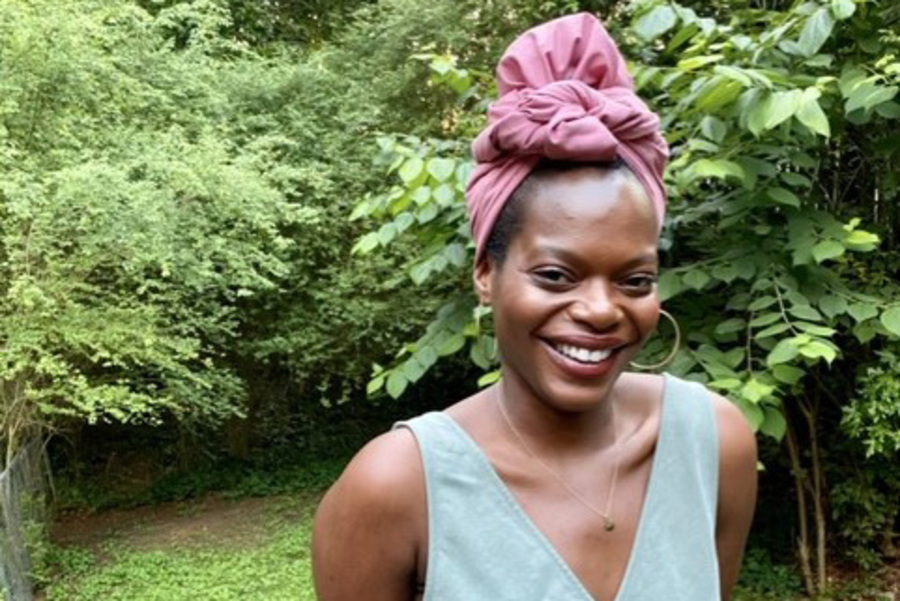On Saturday, May 30, Marie Cisco created a public Google document titled “Theaters Not Speaking Out” and shared it on her Facebook page. It had three names on it. Four days later, the list had grown to 400. Today it sits at 486 entries.
“I made it because theatres were so quick to transition to policies and making statements when coronavirus hit, adapting to Zoom, and all these things,” Cisco said, “but were so slow to adapt to anti-racism practices, or to making statements against racism.”

Cisco, a theatre, film, and television producer who is currently consulting with Harlem’s Apollo Theater and co-producing the Lee Daniels-directed feature film called United States vs. Billie Holiday, heard from several theatres on the list after it was published. A few asked her to remove their names, but most wanted to give her updates and share their statements. The list is still growing, and a team of around 40 is gathering additional data, such as what percentage of the theatres’ board and senior staff are people of color. The team is also capturing and weighing whether theatres’ statements explicitly say “Black Lives Matter.” (American Theatre used Cisco’s spreadsheet in part to compile this listing of theatres’ statements.)
“The thing that was really shocking to me was how there seemed to be theatres from every pocket of the U.S., most I had never even heard of,” she said. Its breadth aside, she said that the list, in its piecemeal and often scattershot messaging, “now serves as a portrait to capture how problematic the American theatre is and always has been.”
Cisco, who has worked with the National Black Theatre, the Public Theater, Lee Daniels Entertainment, and the New Black Fest, grew up in Atlanta and was very close to her grandmother and her many cousins. Her aunts, cousins, and extended family all live within 15 minutes of one another in an area she jokingly calls “the compound.”
“For a while I wanted to be a lawyer because my parents wanted me to,” she said. “They are immigrants, and a part of a lot of immigrant parents’ thinking is to do practical things that make money.”
Her parents moved from Monrovia, Liberia, in 1987, a year before she was born. This was also right before a civil war broke out in Liberia, which made it hard for other family members to leave the country. “In Christmas 2018, I went to Liberia for the first time,” she said. “I got to meet my great aunt and cousins and people I’ve been hearing about my entire life.”
The visit spurred Cisco to create work about Liberia, which was founded in the 19th century by freed American slaves. She is working on a documentary and is currently trying to secure funding. “I didn’t incorporate the Liberian culture into my work until I got much older, when I learned to appreciate it,” she said. “But when I look back, I definitely know that culture influenced a lot of who I am as an artist.”
In March, Cisco was working with the Apollo on the opening of two smaller performance spaces in the nearby Victoria Theatre. As news of COVID-19’s spread grew, she came to Atlanta to stay with her family, packing for just two weeks—and found it disorienting when she realized it would be a much longer stay. After a month or so, she started seeing articles on what the future of American theatre might look like after coronavirus. So she reached out to 20 millennial Black artists—directors, writers, costume designers, and more—and asked them to visualize this future performing arts landscape. She is currently looking for a publisher for the resulting anthology, to be called “Post-COVID Reimagining from the Mind of Millennials.”
“The older, experienced artists were being asked these questions, but they were kind of the ones who created the world that we are existing in,” she said. “I was like, I want to hear from millennials.”
Her vision for the future is to see more Black institutions, run by people of color, with the funding they need to sustain themselves and to flourish. While protests against the theatre field’s entrenched, systemic racism and sexism have been brewing for years, Cisco said, the pandemic lockdown has given people the time and the energy to move forward with the revolution, including not only Cisco’s effort but the “We See You White American Theatre” movement.
In short, Cisco feels that theatre institutions that planned or plan to go on with business as usual are completely out of step with the importance of eradicating racism. When large institutions do stage work by Black artists, she said, they are merely profiting off that work rather than supporting Black artists or their livelihoods.
“I encourage everyone to join the revolution or know that they will be on the wrong side of history,” Cisco said. “The list seems like a small paper, but it actually makes a big deal.”
Utkarsha Laharia is a Goldring Arts Journalism graduate student at Syracuse University.


